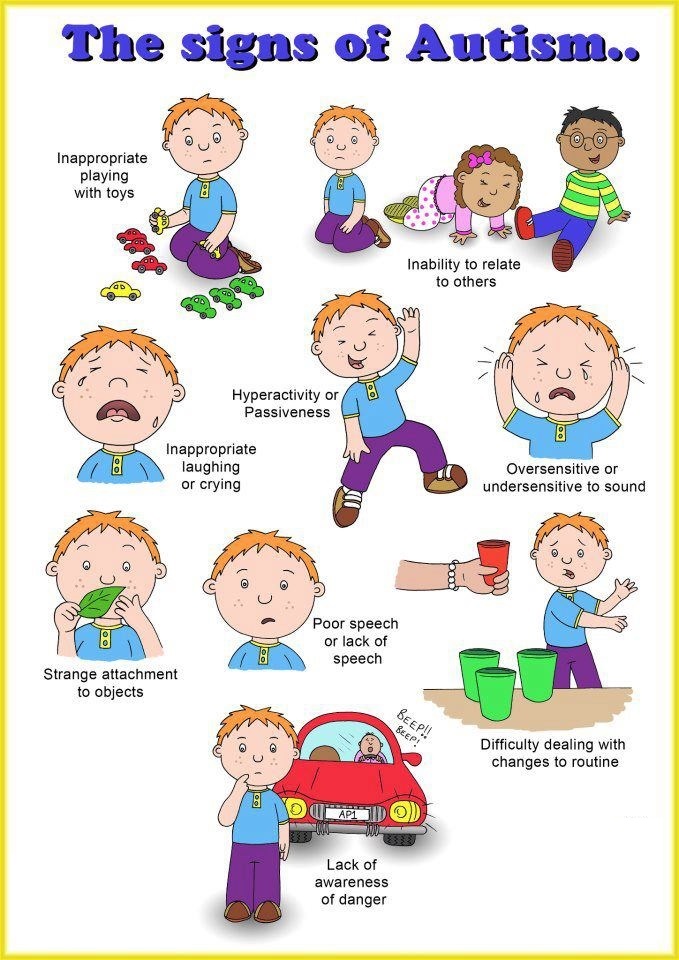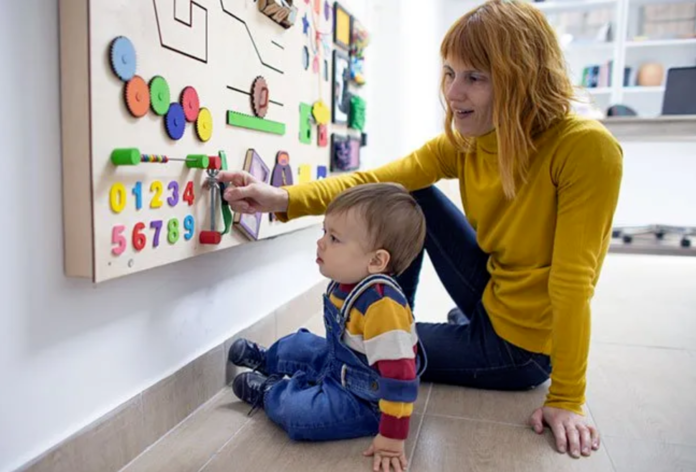Do you have a child with autism? Have you ever felt overwhelmed by the challenge of parenting and wondered what kind of support is available? You’re not alone. Parenting a child with autism can be difficult, but it doesn’t have to be overwhelming. With some simple tips and advice, you can learn how to navigate this journey as your child grows successfully – one step at a time.
In this blog post, we will outline useful strategies that may help parents who are raising children with autism create an environment in which their little ones can thrive.
Know the Signs of Autism
Parents must know the signs of a child with autism to understand their behavior. Check the signs of Autism below:

Create A Routine
Parenting a child with autism can be both challenging and rewarding. Creating structure and consistency through a stable routine is key to helping your child manage day-to-day life.
Setting boundaries and expectations in an organized fashion helps provide them with a sense of security and familiarity that they may not find in other parts of the world.
Establishing routines will also help your child know what to expect and what’s expected of them and give them a sense of control.
A routine will allow you to work together as a team to strive for success throughout each new day while allowing flexibility to deal with any unexpected events.
With a little bit of planning and patience, setting up routines can make all the difference in parenting your child with autism.

Focus On Potty Training
Potty training is one of the most challenging and important milestones a child with autism can achieve, but it’s certainly possible to do so.
To make sure your experience is as smooth as possible, take your time and don’t rush things. Plan out rewards for when they have success, break each step into smaller tasks, praise accomplishments to encourage forward progress, and maintain consistency with timing and technique.
With the right strategies in place, you can support your child’s potty training journey every step of the way.
Even if it comes to fecal smearing when toilet training, it’s important to remember that this is part of the process and that taking a break from the training is okay if you or your child become overwhelmed. When in doubt, don’t be afraid to reach out to your healthcare provider for additional advice and support.
ALSO READ: Causes and Remedies for 9 Month Sleep Regression
Create An Environment Of Support
Creating a supportive home environment is one of the most important things you can do as a parent of a child with autism. This means creating an environment where they feel safe, accepted, and encouraged.
It’s essential to support your child’s efforts and capabilities, even if they face challenges. Find ways to show love and acceptance, such as providing meaningful hugs, accepting their emotions without judgment, and praising them for their successes.
Also, try to create a stimulating but predictable environment for your child. This means creating structure and routines with consistent rules, expectations, and consequences.
Additionally, look for ways to provide sensory input that your child may find calming or soothing.
ALSO READ: Why Parenting Styles Matter When Raising Children?
Communicate The Right Way
Parenting a child with autism can be challenging but also incredibly rewarding. One key tactic to helping your child understand their environment and mama the world around them is speaking in plain language.
Avoid using complex terms, jargon, or phrases that might confuse them – instead, focus on communicating ideas in a way they can relate to, using concrete examples and visuals.
This can help establish trust between you and your child and set the foundation for how they learn new concepts.
Additionally, maintaining a gentle, reassuring tone of voice while communicating will create a safe space for your child to process information without feeling overwhelmed or frustrated.
ALSO READ: Active Gym Games That Will Cheer Up Your Kids
Use Visuals
Communicating with a child who is living with autism can sometimes be challenging, but parents can use visuals to express themselves better and make sure their message is being understood.
Using pictures, symbols, or gestures can be a great way to explain something that might seem abstract to children with autism.
Not only do visuals provide a clearer way of imparting information—a picture is worth a thousand words—but they can also help the child understand intentions and foster communication even when it may have seemed impossible.
Whether helping your child learn everyday tasks or having more complex conversations, visuals are effective for parenting a child with autism.
ALSO READ: Baby Nursery Rugs that Will Make a Hit out-and-out
Be Patient And Understanding

Parenting a child with autism can often be incredibly challenging. When your child has difficulty expressing their own feelings and understanding the emotions of others, it is important to stay patient and understanding.
By taking a moment to recognize the difficulty the situation is causing for them and the frustration that can come with it, you are creating an atmosphere of safety and kindness needed for your child to feel supported in their journey.
With patience, empathy, and compassion, you can help give your child the attention they need and deserve as they learn how to interpret social cues and the behaviors needed to navigate their environment more effectively.
When in doubt, don’t forget to reach out to your healthcare provider for additional advice and support. They can provide invaluable resources to help you and your child on their journey.
In addition, leaning on your family and friends’ support network can also be a great source of comfort and guidance. If you’re overwhelmed, don’t hesitate to ask for help.
ALSO READ: 4 Examples of Positive Discipline
Final Thoughts
Overall, navigating parenting a child with autism doesn’t have to be an overwhelming experience. By understanding the unique challenges that come with raising a child with autism, creating a supportive environment, communicating in plain language using visuals when possible, and being patient and understanding of their needs, you can help your child reach their fullest potential.
With the right resources in place and a supportive network of family and friends around you, you can feel empowered to provide your child with the love and care they need on this journey. Make sure to take the time to recognize and appreciate how far you and your child have come, no matter what challenges may arise. With the right guidance, you can make a world of difference in your child’s life.
ALSO READ:
Naturally Increasing Your Breast Milk Supply




